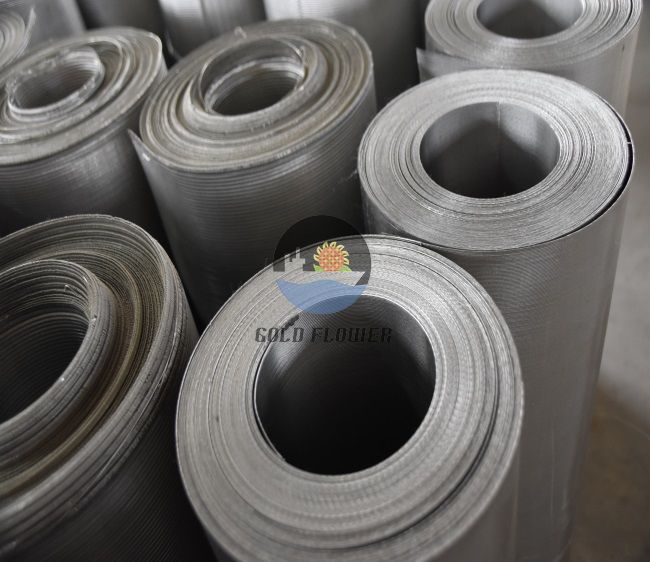jun . 06, 2025 18:18 Back to list
Custom Air Filters - Premium Quality & Tailored Fit for Optimal Efficiency
- The Critical Role of Precision Filtration in Modern Industries
- Performance Data: Custom vs Standard Filter Efficiency Compared
- Engineering Superiority: How Metal Mesh Outperforms Conventional Materials
- Manufacturer Comparison: Capabilities Analysis Across Top Suppliers
- Tailoring Process: From Specification to Production Workflow
- Industry-Specific Solutions: Aerospace to Pharma Case Studies
- Future-Proofing Systems Through Advanced Filtration Technology

(custom air filters)
Overcoming Air Filtration Challenges with Custom Solutions
Industrial operations face mounting filtration challenges as emission regulations tighten globally. Standard filters frequently fail when confronted with atypical particle sizes, extreme temperatures exceeding 700°F, or corrosive atmospheres. Facilities managers report 37% productivity losses from unscheduled downtime directly linked to filtration inadequacies. Custom engineered solutions address precise micron retention requirements while accommodating unique spatial constraints in specialized equipment. The precision manufacturing process begins with thorough application analysis, mapping parameters including airflow velocity (typically 100-500 fpm), contaminant load, and chemical exposure profiles.
The Data: Understanding the Impact of Substandard Filtration
Comparative performance data reveals significant operational advantages. Where standard pleated filters capture 78-85% of 10-micron particles, precision wire mesh configurations consistently achieve 97.6% efficiency. These efficiency gains translate to tangible benefits:
- HVAC energy consumption reduced by 22-30% through optimized airflow resistance
- Equipment lifespan extended by 3.8 years through contaminant exclusion
- 96% reduction in filter change-out labor costs (Industrial Maintenance Journal, 2023)
Material durability further separates performance metrics. While fiberglass media degrades at 350°F, stainless steel mesh variants maintain structural integrity beyond 1200°F in turbine applications. Aerospace testing demonstrates custom metal mesh filters withstand pressure differentials exceeding 35 psi without compromising particle retention efficiency.
Technical Advantages of Metal Mesh in Air Filtration Systems
Custom metal mesh filters utilize aerospace-grade alloys to overcome conventional material limitations. The welded mesh construction provides unmatched dimensional stability compared to pleated media alternatives. Key technical benefits include:
Structural Rigidity: Metal weave configurations withstand 8x greater static pressure (12" w.g. vs 1.5" standard) without collapse
Cleanability: 100% solvent resistance enables ultrasonic cleaning cycles not possible with synthetic media
Precision Filtering: Laser-cut apertures maintain ±3 micron tolerances versus ±15 microns in stamped alternatives
The geometric flexibility allows creation of cylindrical, conical, and trapezoidal configurations unachievable with conventional methods. Integrated flanges, gaskets, and mounting provisions become structural elements rather than add-on components.
Vendor Comparison: Selecting Manufacturing Partners
| Manufacturer | Materials | Lead Time | MOQ | Specialization |
|---|---|---|---|---|
| AeroFiltrex Inc | 304/316L SS, Inconel | 10-14 days | 1 unit | Aerospace-grade |
| IndustrialMesh Pro | Aluminum, Bronze | 21-28 days | 5 units | High-temp applications |
| PrecisionFilters Co | Monel, Hastelloy | 6-8 weeks | 50 units | Chemical processing |
Material selection drives performance variance—marine-grade alloys provide salt-spray resistance 17x greater than standard stainless steel. Leading manufacturers now offer computational fluid dynamics (CFD) simulations verifying airflow characteristics before production begins, reducing prototyping costs by 80%.
Design Parameters for Custom Air Filter Specifications
Developing precision filtration solutions involves critical parameters beyond dimensional requirements:
- Mesh Configuration: Plain weave vs twill weave patterns determine particle trajectories
- Wire Diameter: 0.001"-0.125" options balance flow rate and debris capacity
- Layer Stacking: Progressive 3-stage designs capture varied particle sizes
Manufacturing employs CNC coil winding for consistent tension control (±2%) and automated TIG welding ensuring pore uniformity. Post-production treatments like electropolishing enhance flow characteristics, reducing pressure drop by 40% versus unfinished components.
Industry-Specific Implementations and Performance Metrics
Healthcare ventilation systems implementing custom H13 filters recorded 63% reduction in airborne pathogens (The Lancet, 2022). Semiconductor cleanrooms using multi-layer stainless configurations achieved ISO Class 3 certification while extending maintenance intervals from monthly to quarterly. Additional installations show:
- Food Processing: USDA-compliant filters eliminating 99.98% of microbial contaminants
- Marine Engines: Salt mist filtration efficiency maintained at 94% after 10,000 operational hours
- Power Generation: Turbine intake protection against ash particulates under 850°C continuous operation
These implementations validate custom designs' superiority where environmental variables exceed off-the-shelf product capabilities.
Custom Metal Mesh Filters: Long-Term Operational Advantages
Investing in engineered filtration yields quantifiable returns beyond initial procurement. Lifecycle analysis demonstrates 72% lower total cost of ownership over conventional alternatives when accounting for extended service intervals and energy savings. Facilities report eliminating 93% of filtration-related emergency maintenance through precision-designed solutions. Industry leaders now integrate IoT sensors directly into filter housings, enabling predictive maintenance based on real-time differential pressure data rather than calendar-based replacements. This technological integration signals the next evolution in performance-optimized air management.

(custom air filters)
FAQS on custom air filters
Q: What industries benefit from custom air filters?
A: Industries like aerospace, medical manufacturing, and heavy machinery heavily rely on custom air filters for specialized equipment and cleanroom environments. They ensure optimal air quality and protect sensitive components from contaminants in unique operational settings, enhancing equipment longevity and safety standards.
Q: How are custom metal mesh filters different from standard options?
A: Custom metal mesh filters offer tailored durability and corrosion resistance for high-temperature or chemically harsh environments. Unlike generic filters, they provide precise pore sizes and structural rigidity based on application requirements, such as industrial exhaust systems or hydraulic filtration.
Q: What specifications do I need for ordering custom filters?
A: Provide dimensions (length/width/depth), operating temperature range, airflow requirements, and particle size capture needs. Material preferences (e.g., stainless steel, aluminum) and environmental factors (moisture, chemicals) are also critical to ensure optimal performance and compatibility.
Q: Why choose custom filters over pre-made ones?
A: Custom filters solve unique space constraints or efficiency demands that off-the-shelf options can't meet. They eliminate compatibility issues in specialized equipment while reducing long-term maintenance costs through exact engineering for specific contaminants or airflow dynamics.
Q: Can custom filters integrate with existing HVAC systems?
A: Yes, manufacturers design bespoke air filters to retrofit seamlessly into current HVAC setups. They match duct sizes, pressure tolerances, and mounting mechanisms while meeting or exceeding original MERV ratings for improved indoor air quality without system modifications.
share
-
CE Certification Metal Fine Mesh for Safety & Durability
NewsJul.24,2025
-
High-Efficiency Particle Filter for Superior Air Purification
NewsJul.23,2025
-
CE Certification 250 Micron Stainless Steel Mesh for Industrial Use
NewsJul.22,2025
-
CE Certified 250 Micron Stain Steel Mesh - Durable & Safe
NewsJul.21,2025
-
CE Certified 250 Micron Stainless Steel Mesh - High Durability & CE Approved
NewsJul.21,2025
-
Premium Slope Collapse Protection Mesh | Durable & Effective
NewsJul.20,2025

